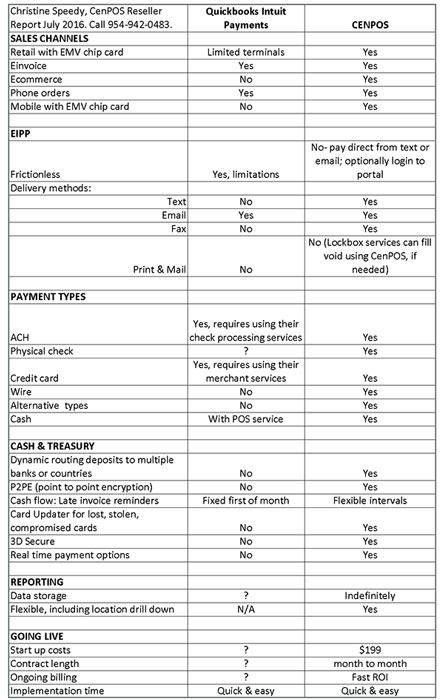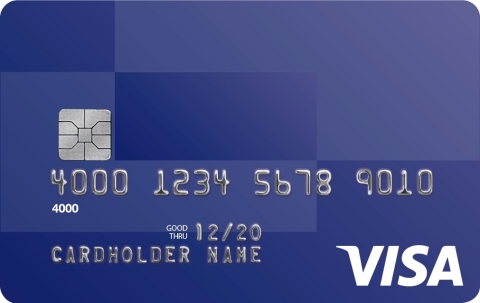Companies Collaborate to Accelerate the Adoption of Digital Payments
SAN JOSE, Calif. & SAN FRANCISCO–(BUSINESS WIRE)–Jul. 21, 2016– PayPal(NASDAQ:PYPL) and Visa (NYSE:V) today announced a U.S. strategic partnership that will result in an improved and more seamless payment experience for Visa cardholders and will offer greater choice in how consumers pay with the PayPaland Venmo wallets.
The partnership puts PayPal and Visa on a new path, with the companies working more collaboratively to accelerate the adoption of safe, reliable and convenient digital payments for consumers and merchants. Further, the arrangement is designed to carry significant benefits for issuing financial institutions, acquirers, and merchants. For issuing institutions, these include a better customer experience, more spending volume on their credit and debit cards, lower operational costs, and improved security. Merchants will also benefit from the improved customer experience, efficiency, and security, which together will help drive increased sales.
Details of this agreement include:
- Enhanced Consumer Choice and Improved Experience for Visa Cardholders: PayPal will make it easier for new and existing customers to choose to pay with their Visa cards and ensure a more seamless experience:
- Visa cards will be presented as a clear and equal payment option during enrollment and subsequent payments, with an easy ability for consumers to set as their preferred payment method
- Visa digital card images will be incorporated into payment flows
- PayPal will not encourage Visa cardholders to link to a bank account via ACH
- PayPal will also support and work with issuers to identify consumers who choose to migrate existing ACH payment flows to their Visa cards
- PayPal will Join the Visa Digital Enablement Program (VDEP) to Expand Point of Sale Acceptance: PayPal will join VDEP, a commercial framework for Visa partners to access Visa’s token services and other digital capabilities in the United States. This will enhance transaction security and expand acceptance for PayPal’s digital wallet to all physical retail locations where Visa contactless transactions are enabled. Consistent with VDEP, issuers will be able to choose whether to participate and retailers can expect to pay fees that are consistent with other contactless transactions they accept today.
- Instant Withdrawal of Money: Consumers will be able to instantly withdraw and move money from their PayPal and Venmo accounts to their bank account via their Visa debit cards leveraging Visa Direct – providing an experience that offers speed, security and convenience.
- Enhanced Data Quality: PayPal will ensure that data provided to issuers and their cardholders for Visa-funded transactions will be consistent with the information that is received with traditional Visa card transactions. This will ensure a better consumer experience, reduce cardholder confusion, ensure proper application of rewards, and reduce costly and time-consuming disputes.
- Economic Incentives: The agreement affords PayPal certain economic incentives, including Visa incentives for increased volume, and greater long-term Visa fee certainty.
“Giving consumers choice in how and where they pay is essential to our goal of being a customer champion and we welcome the opportunity to work with more partners like Visa who share our vision,” said Dan Schulman, president and chief executive officer, PayPal. “This agreement opens new avenues for PayPal to collaborate with Visa, financial institutions, and others in the payments ecosystem to deliver greater value, more choice, and new experiences for our joint customers wherever they transact – online, in-app or in-store.”
“We are excited to begin a new chapter with PayPal. Our agreement provides a framework for our companies to work together collaboratively,” said Charlie Scharf, chief executive officer, Visa. “PayPal has built industry leading capabilities which complement those of Visa and our clients, and working together, we will be able to deliver better solutions for consumers and merchants. At Visa, we are focused on growth by providing our issuer and acquirer clients – and their clients, merchants and consumers – with the best way to pay and be paid everywhere and this agreement supports this approach.”
About PayPal
At PayPal (Nasdaq: PYPL), we put people at the center of everything we do. Founded in 1998, we continue to be at the forefront of the digital payments revolution. PayPal gives people better ways to manage and move their money, offering them choice and flexibility in how they are able to send money, pay or get paid. We operate an open, secure and technology agnostic payments platform that businesses use to securely transact with their customers online, in stores and increasingly on mobile devices. In 2015, 28% of the 4.9 billion payments we processed were made on a mobile device. PayPal is a truly global payments platform that is available to people in more than 200 markets, allowing customers to get paid in more than 100 currencies, withdraw funds to their bank accounts in 56 currencies and hold balances in their PayPal accounts in 25 currencies. For more information on PayPal, visit https://www.paypal.com/about. For PYPL financial information, visit https://investor.paypal-corp.com.
About Visa Inc.
Visa Inc. (NYSE:V) is a global payments technology company that connects consumers, businesses, financial institutions, and governments in more than 200 countries and territories to fast, secure and reliable electronic payments. We operate one of the world’s most advanced processing networks — VisaNet — that is capable of handling more than 65,000 transaction messages a second, with fraud protection for consumers and assured payment for merchants. Visa is not a bank and does not issue cards, extend credit or set rates and fees for consumers. Visa’s innovations, however, enable its financial institution customers to offer consumers more choices: pay now with debit, pay ahead of time with prepaid or pay later with credit products. For more information, visit usa.visa.com/about-visa,visacorporate.tumblr.com and @VisaNews.



